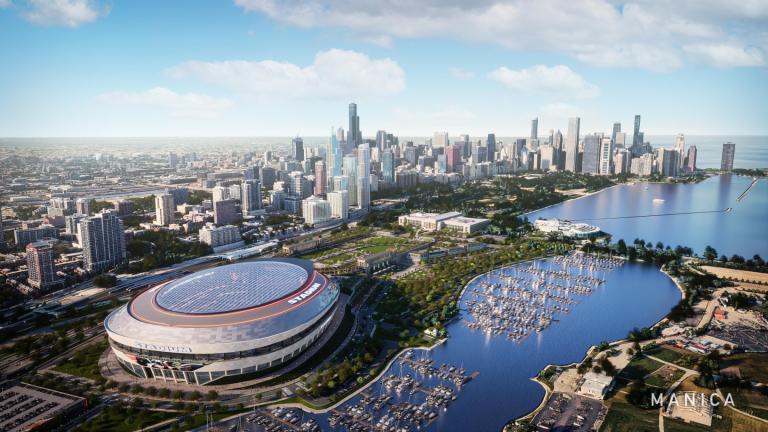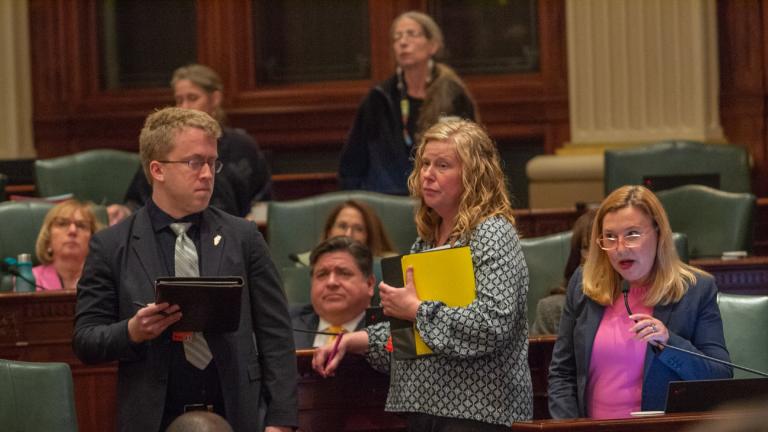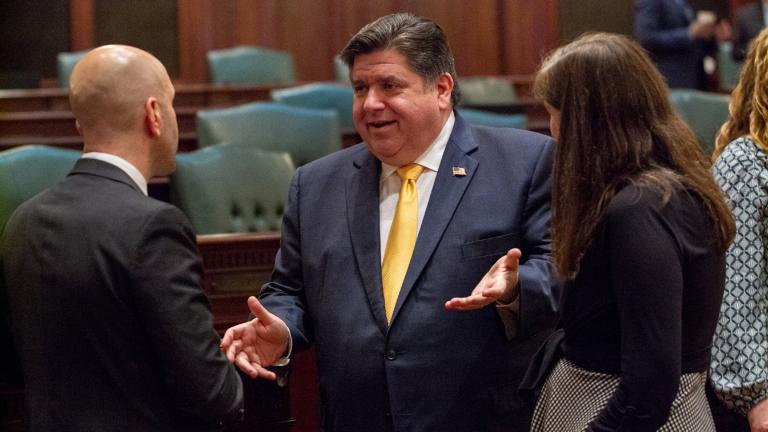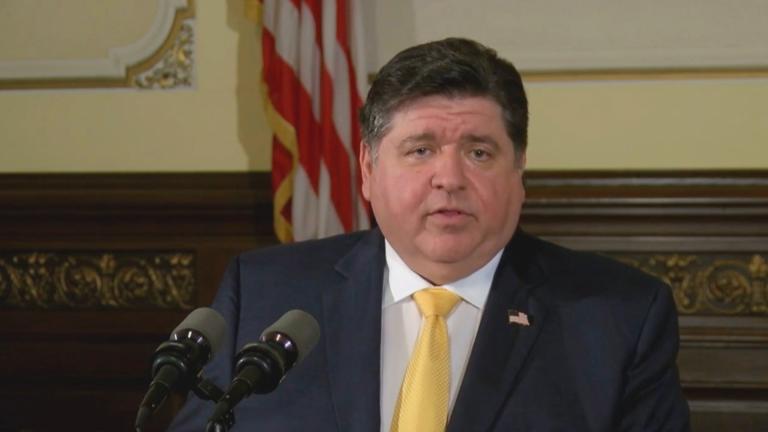One year ago, Gov. J.B. Pritkzer took the reins of state government from Republican Gov. Bruce Rauner, who oversaw a historic budget impasse and a fraught partisan standoff.
With the help of Democratic supermajorities in the legislature, Pritzker has spent the past year bringing big change to Illinois, increasing the minimum wage, raising the gasoline tax and legalizing recreational marijuana. He’s also put Illinois on a path to have slot machines and casinos rivaling the gambling options in Las Vegas, both to pay for billions of dollars in construction projects.
But 2019 was also distinguished by evidence of a widespread FBI probe into government corruption, including investigations with links to Democratic Party of Illinois Chairman and Illinois House Speaker Michael Madigan.
During an interview Friday, placed under embargo until the anniversary of his inauguration on Tuesday, WTTW News asked Pritzker what it will take for him to ask for Madigan’s resignation as the leader of his party.
“Whenever there has been corruption that’s been, where there’s been a raid on someone’s office, where there’s been an indictment, I’ve called for them to step down,” he said. “I think that we need to make sure that these investigations take place and that they’re thorough and that we identify the wrongdoers and that they get out.”
Video: Watch our full interview with Pritzker.
Chicago Ald. Ed Burke has been indicted, and is currently fighting extortion, bribery and racketeering charges.
Illinois’ new Supreme Court Chief Justice, Anne Burke, is married to the alderman.
“I think the court system in the state of Illinois is in good shape. But I would also say that corruption, wherever it is, needs to be rooted out,” Pritkzer said. As to whether Justice Burke is a problem, he said: “I don’t know, because I don’t know what wrongdoing is being alleged about her.”
Pritzker said in the new legislative session set to begin later this month, “it is important that we go after corruption in the state, that we pass laws that will make it harder for people to be able to do any wrongdoing,” but he did not say specifically what that will include.
Other priorities, he said, include criminal justice reform, restoring funding to social services and passing a balanced budget with bipartisan votes.
“Stability overall is what we’re looking for,” he said.
His long-term plan for achieving that sort of stability relies on voters in November agreeing to amend the state constitution so that Illinois can tax income at a graduated rate.
Even if they do – and that’s no guarantee – that’s after the deadline for passing a budget for Illinois’ next fiscal year, meaning Pritzker will have to craft the next budget without any of the additional revenue a graduated tax may bring in.
Pritkzer’s original plan for this year’s budget included partially deferring the state’s pension payment, extending the deadline by which Illinois is set to reach 90% funding of its woefully underfunded pension systems, from 2045 to 2052.
After criticism from lawmakers on both sides of the aisle, and thanks to an infusion of unexpected tax money, that idea was dropped.
But it’s not off the table for the coming fiscal year, as long as it’s coupled with other changes such as transferring valuable state assets (the lottery, tollway or Thompson Center government office building are among the possibilities).
“We put out a number of things that we think you need to do, ways, tools, that you can use in order to help us manage our pensions in the state,” Pritzker said. “This component has to be done in conjunction with these other items. Because we’re trying very hard not to crowd out the important expenditures that need to be made.”
Pritzker and legislators are on the hook for finding $9.8 billion for the state’s pension systems in the next budget – a half-billion dollars more than the pension payment this fiscal year.
Illinois will have some additional money to work with, via the state tax on newly legalized marijuana.
The governor himself will not be contributing to state coffers in that capacity – he told WTTW News he does not plan to buy pot.
But he continues to describe the cannabis law as the nation’s most equity-centric. Pritzker has already pardoned thousands of individuals convicted of low-level pot crimes, and the law provides a means for those individuals to get a leg up to win a state license to sell or grow weed legally.
Chicago’s black aldermen have said it’s too little too late, given that white-owned cannabis dispensaries first opened to serve only medical patients were able to begin selling recreational marijuana on Jan. 1. The next batch of dispensaries authorized under the new law won’t be awarded until spring.
After negotiations, including with the governor’s office, the black caucus backed off an attempt to delay pot sales in Chicago until July. Some aldermen said at the time that the Pritzker administration had promised new medical marijuana dispensary licenses set to come online in the near future, would be awarded to minority owners.
Pritkzer said he did not directly talk with aldermen about it, but he said his administration never made that sort of guarantee.
“You can’t guarantee that you would do that, it’s unconstitutional to do that,” he said. “What we have done, however, is made sure that we have a social equity component of this program.”
There’s been enough demand for cannabis in the couple of weeks since it was legalized that there’s a shortage; some dispensaries have temporarily closed or limited sales to recreational customers.
Pritzker said it’s a slow rollout by design.
“It’s intentional. We know there’s a lot of demand out there. But we want people to know that there’s a lot of demand because social equity owners will come into play in May. That demand in part will be soaked up by them,” he said.
Watch our full interview with Pritzker:
Follow Amanda Vinicky on Twitter: @AmandaVinicky








